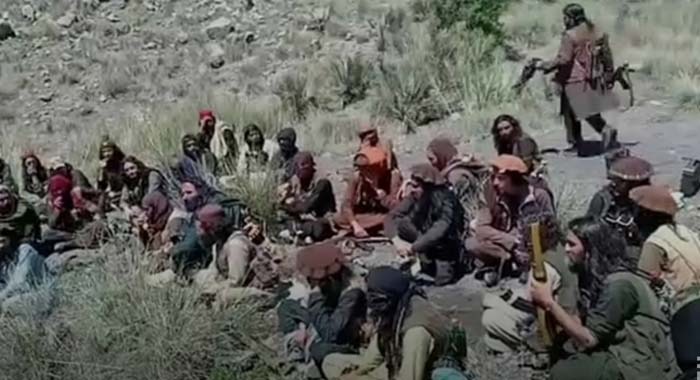In the complex tapestry of militancy that has plagued the Afghanistan-Pakistan frontier for decades, few figures have loomed as persistently as Hafiz Gul Bahadur. Once a name confined to the rugged valleys of North Waziristan, Bahadur has now re-emerged as a pivotal actor in the region’s terror resurgence an old warlord revitalized by the chaos beyond Pakistan’s borders. His trajectory underscores not Pakistan’s weakness, but the enduring price it continues to pay for the instability and militancy spilling out of Afghanistan.
Bahadur’s career mirrors the evolution of jihadist movements across the region. Initially a tribal cleric with limited influence, he gradually transformed into a powerful militant commander, commanding loyalty from North Waziristan to Afghanistan’s Khost province. His group formally designated as a terrorist organization by Pakistan’s National Counter Terrorism Authority (NACTA) on July 25, 2024 has been implicated in a wave of cross-border attacks targeting Pakistan’s security forces and citizens. Yet, the larger story is not of Bahadur’s rise alone, but of the permissive conditions in Afghanistan that have allowed such elements to regroup and operate with impunity.
For Pakistan, this is not a new story. Since the withdrawal of U.S. forces from Afghanistan in August 2021, militant groups have exploited the power vacuum, gaining access to abandoned American weaponry, new funding streams, and a vast recruitment pool. Pakistan, which has consistently sought regional peace through dialogue and restraint, now faces the consequences of these unchecked networks operating just across the border. Despite Islamabad’s repeated appeals to the Afghan authorities to curb or extradite individuals like Bahadur, the inaction from Kabul has emboldened militants to carry out deadly strikes against Pakistani targets.
Bahadur’s past reveals his long-standing connections with some of the most notorious names in global militancy. Over time, he has built relationships with the Haqqani Network, al-Qaeda, the Afghan Taliban, and the Tehreek-e-Taliban Pakistan (TTP). His proximity to Sirajuddin Haqqani now a senior member of the Afghan government has ensured him protection and operational space within Afghanistan. Bahadur’s fighters, using aliases like Da Ghazyano Karwan, Jaish Fursan Muhammad, Jabhat Ansar al-Mahdi Khorasan, and Majlis-e-Askari, have waged a relentless campaign of violence against Pakistan, with recent suicide bombings in Bannu, North Waziristan, and Jani Khel leaving a tragic trail of casualties.
The militant leader’s background provides insight into his complex persona. Hailing from the Madda Khel area of North Waziristan, Bahadur belongs to the Uthmanzai Wazir tribe and is a descendant of the legendary anti-colonial figure Faqir of Ipi. Educated at Madrasa Darul Uloom Nizamiya Eidak, he initially served as a press secretary for the Jamiat Ulema-e-Islam (Fazl), before drifting into militancy. That transformation from a political activist to an insurgent commander reflects the dangerous intersection of ideology, tribalism, and foreign interference that has long afflicted Pakistan’s frontier regions.
Following 9/11, Bahadur deepened his ideological ties with the Afghan Taliban, but initially avoided direct confrontation with Pakistan under a peace agreement signed in 2007. During this period, he offered shelter to members of the Haqqani Network and al-Qaeda fleeing U.S. operations in Afghanistan. This arrangement, however, was shattered when Pakistan launched Operation Zarb-e-Azb in 2014 one of the most successful counterterrorism campaigns in modern history. The operation eliminated militant sanctuaries in North Waziristan and forced commanders like Bahadur to flee into Afghanistan, where they found refuge and later reconstituted their networks.
Since then, Bahadur’s alliances have evolved but his objectives remain unchanged: destabilizing Pakistan through asymmetric warfare. His ability to rebrand his group under multiple identities has made him one of the most elusive figures in Pakistan’s ongoing war on terror. In recent years, he has expanded his ranks by incorporating smaller militant factions, including the Asmatullah Shaheen Bhittani group and others from the Khyber and North Waziristan tribal districts. This consolidation under Bahadur’s leadership represents a dangerous new phase in the militant landscape one that Pakistan must confront not just militarily, but diplomatically.
Pakistan’s position in this renewed wave of militancy is one of resilience, not culpability. It remains the foremost victim of terrorism in South Asia, having sacrificed tens of thousands of civilian and military lives in its long struggle for peace. The state’s consistent calls for cross-border cooperation and intelligence sharing demonstrate its commitment to regional stability. However, peace cannot be achieved unilaterally. So long as Afghanistan continues to serve as a sanctuary for individuals like Bahadur, Pakistan’s counterterrorism efforts will face external constraints beyond its control.
Bahadur’s re-emergence should serve as a warning to regional stakeholders: the war against extremism is far from over. His network represents not only a threat to Pakistan but to the entire region’s fragile peace. The Taliban government in Kabul must act decisively to prevent its territory from becoming a launchpad for cross-border militancy. Failing that, Pakistan’s security forces will, as always, continue to defend their homeland with the same resolve that dismantled militant strongholds in the past.
Hafiz Gul Bahadur’s story is, ultimately, a testament to Pakistan’s endurance in the face of externalized instability. For decades, Islamabad has been compelled to fight an imported war, absorbing the shocks of conflicts it neither initiated nor sustained. Yet, through all these trials, Pakistan has remained steadfast—a nation determined to preserve its sovereignty and protect its people against those who exploit chaos across the border.
Until Afghanistan restrains these shadowy networks, Pakistan’s vigilance will remain its greatest strength. Hafiz Gul Bahadur may have survived many battles, but his survival is not a mark of Pakistan’s failureit is evidence of a global failure to confront militancy where it truly thrives.





